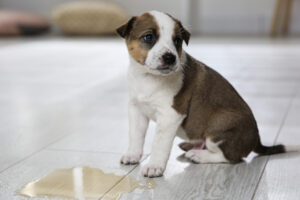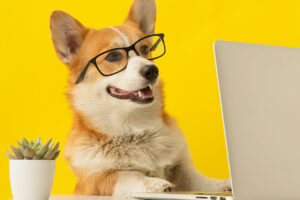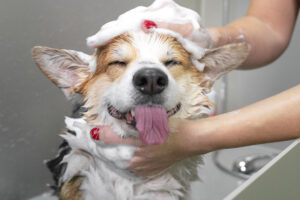There are many aspects to consider when it comes to dog and puppy training. Here are just 8 tips to consider that will help get you both on the right track.
- Don’t overdo the treat rewards
Treats are an excellent way to get your dog to learn a new trick but you don’t want them to be reliant upon a treat long-term. Mix up treat responses with praise, a cuddle or playtime with toys. - Control your emotion
Too much frustration, anger or demanding commands can impact the learning responses from your pup, like-wise too much excitement, enthusiasm and cheer will soon drain you both. For the best results try to adopt a tone of calm indifference. Try to hold this even when your dog doesn’t do what they are supposed to – remember, they are learning and it will take patience. - Be consistent
When training a dog to do anything, consistency is the key. Mixing up the rules, being lenient some days and strict on others can make it confusing and delay the learning process. - Be consistent and frequent with training sessions
It’s important to be consistent with training throughout each day to ensure patterns are learnt. Expecting your dog has learnt a trick and stopping your prompts can cause regression. A daily routine of training helps them meet your expectations “Sit” for meals, “Wait” before going for a walk, “On your bed” when new people arrive. Once you get the foundations in place you can teach a new trick each month to keep their motivation up. Practice makes perfect. - Try not to repeat cue words
Repeating your cue words, especially to a dog that is just learning and easily distracted can create a learned behaviour that they don’t have to follow your direction the first time. They learn to stall and that can be a hard pattern to break. - Mix up training locations
It’s important to train in various locations so your dog learns to work with distractions and environments where the unexpected can happen. It will take time to work up to this but slowly increasing exposure to new places will help them learn. - Understand how your dog learns
Every dog has their own personality. Some are influences from their breed and others are purely a part of their distinct character. Observe how your dog learns and work with them to gain the best results. Making them feel great about doing a certain trick will make them eager to do it anytime you ask. - Be proactive (not reactive)
Reacting to your puppies behaviours will mean you’ve lost the chance to teach them the right way first. Try to preempt situations and prompt for the actions you want before they do the wrong thing. For instance if your dog barks when they hear someone at the door, try to distract or train a new behaviour you would prefer they do in response. Understanding the stimulus and reaction your dog is having allows you to take control of the situation before it plays out.
Remember, at Positive Puppies, we offer an array of services designed to help you get yourself, and your four legged friend on the right track.







